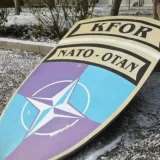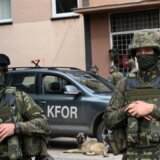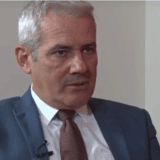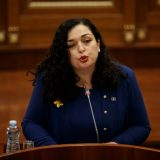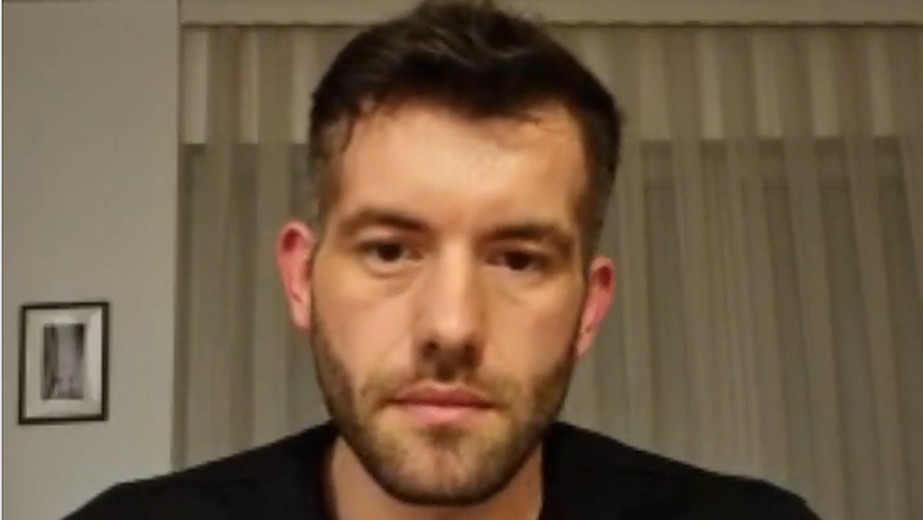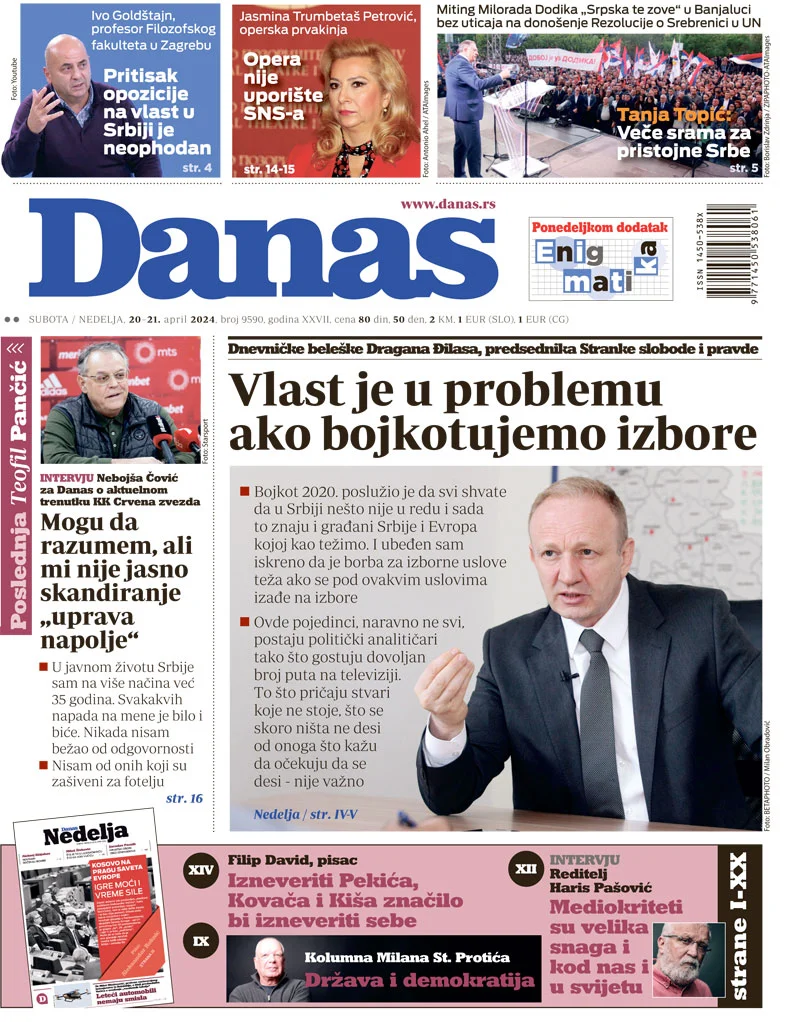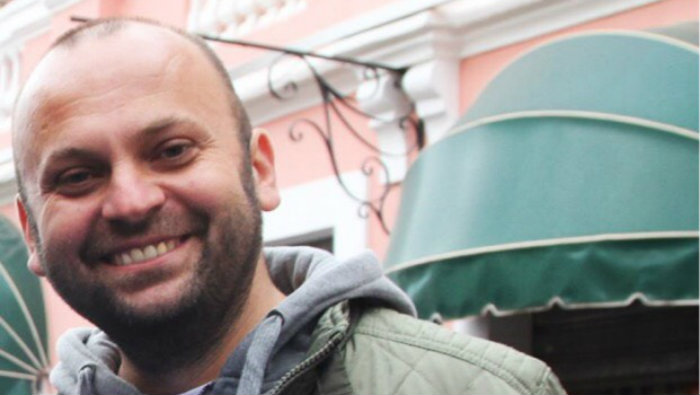
Najpametniji poduhvat Srbije bio bi priznavanje nezavisnog Kosova. To bi pomoglo i Srbiji i samom srpskom narodu.
Srbija će to učiniti jednog dana, tako da što pre to bolje. Kosovo i Srbija mogu ozbiljno da sarađuju samo kao dve nezavisne države. Prihvatanje stvarnosti je neophodno. Bilo koje drugo rešenje neće biti uspešno.
To poručuje Imer Muškoljaj, novinar, politički analitičar, kolumnista, aktivista civilnog sektora i glumac iz Prištine, u intervjuu u sklopu projekta portala Danas „Druga strana Kosova“.
- Pitanja koje su čitaoci Danasa postavili na društvenim mrežama
Kakvo je stanje sa slobodom medija na Kosovu?
– Sloboda izražavanja i medija na Kosovu je na boljem nivou nego u većini zemalja u regionu. Naravno, politika i druge interesne grupe pokušavaju da utiču na medije i u nekim slučajevima uspevaju, ali generalno mediji su slobodni da izveštavaju, prezentuju stavove svih stranaka i promovišu demokratske vrednosti. Na Kosovu ima mnogo „zdravih“ medija, koji se mogu uzeti kao primer i u zemljama regiona.
Kakav je standard običnih ljudi na Kosovu? Kakva je zaposlenost, koja je prosečna zarada, koliko ima nezaposlenih?
– Na Kosovu, prosečne plate su veće u javnom nego u privatnom sektoru. Prema Kosovskoj agenciji za statistiku, prosečna bruto plata na Kosovu u 2017. godini iznosila je 528 evra – u javnom sektoru 532 evra, dok je u privatnom sektoru 384 evra. Generalno, građani Kosova imaju prosečan život, kao i u drugim zemljama u regionu. Zvanično, nezaposlenost na Kosovu je preko 25 posto, ali veliki broj građana radi „na crno“ i nisu registrovani u relevantnim institucijama. Takođe, Kosovo ima veliku dijasporu koja svake godine donosi stotine miliona evra. Dakle dijaspora je velika „infuzija“ za Kosovare.
Koliko državljana Kosova radi u inostranstvu?
– Zvanično, u inostranstvu živi i radi više od 700 hiljada građana. Većina živi u Nemačkoj i Švajcarskoj, ali i u Austriji, skandinavskim zemljama i SAD.
- Pitanja koja je postavila Gordana Novaković, generalna sekretarka Saveta za štampu
Koliko mediji na Kosovu poštuju etičke i profesionalne standarde, odnosno koliko često krše etički kodeks i koje odredbe?
– Na Kosovu postoje mnogi profesionalni mediji koji poštuju etički kodeks. Ali postoje i drugi mediji koji imaju problema sa izveštavanjem. Ako uporedimo kosovske medije sa onima u Srbiji, generalno više poštuju etički kodeks. Srećom na Kosovu nema tabloida kao u Srbiji i građani su u velikoj meri pošteđeni laži, klevete, govora mržnje i trovanja javnosti lažnim vestima. Međutim, u mnogim slučajevima pojedini mediji ne izveštavaju profesionalno, ali generalno verujem da ipak stoje bolje od većine medija u regionu.
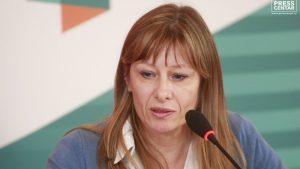
Da li u medijima na Kosovu ima govora mržnje i prema kome je najčešće usmeren? Kako se u Savetu za štampu borite protiv toga?
– Govor mržnje uglavnom je prisutan u komentarima čitalaca i više na društvenim mrežama nego u onlajn medijima. Govor mržnje je uglavnom usmeren protiv etničkih, verskih i LGBTI zajednice. Savet za štampu je preduzeo mere protiv govora mržnje ne samo u smislu edukacije medija i javnosti, već i postizanja dogovora sa glavnim onlajn medijima kako bi se odbacili komentari čitalaca, jer nisu mogli imati kontrolu nad njim. Ovo je dovelo do pada govora mržnje, i situacija je mnogo bolja nego pre nekoliko godina.
Kako, kao politički analitičar, ocenjujete ponašanje vodećih političara iz Beograda i Prištine u toku aktuelnih pregovora? Koji vam
deluju odgovornije?
– Pregovori između Kosova i Srbije su počeli u cilju poboljšanja života običnih građana i normalizacije odnosa između dve zemlje. Nažalost, nakon toliko godina dijaloga to nije postignuto. Političari iz obe zemlje, koji su deo dijaloga, koriste ovaj proces za političke poene, a ne za poboljšanje života građana. U većini slučajeva, oni su se pokazali neodgovornima za implementaciju sporazuma koje su potpisali, tumačeći ih u svetlu vlastitih interesa. To je dovelo do gubitka poverenja u proces dijaloga.
- Pitanja novinara Danasa
Šta bi, prema Vašem mišljenju, trebalo najpre i prioritetno učiniti kako bi se odnosi Srbije i Kosova normalizovali?
– Najpametniji poduhvat Srbije bio bi priznavanje nezavisnog Kosova. To bi pomoglo i Srbiji i samom srpskom narodu. Srbija će to učiniti jednog dana, tako da što pre to bolje. Kosovo i Srbija mogu ozbiljno da sarađuju samo kao dve nezavisne države. Prihvatanje stvarnosti je neophodno. Bilo koje drugo rešenje neće biti uspešno. Srbija bi trebalo da preuzme odgovornost za sve zločine koje je režim Slobodana Miloševića počinio na Kosovu. Denacifikacija Srbije će biti dobra za ceo region. Takođe, građani Srbije i Kosova treba da se više poznaju međusobno, kako bi se eliminisale predrasude. Ovo je posebno važno za mlade ljude.
Kako ocenjujete proces normalizacije koji trenutno vode vlasti u Prištini i Beogradu?
– Dijalog nije počeo da reši probleme, već da povuče rešenje. Brisel je „izmislio“ dijalog kao opravdanje za svoju bespomoćnost u rešavanju problema između dve zemlje. Kosovo i Srbija ne mogu sami da rešavaju nesuglasice, bez ozbiljnog mešanja spolja. U suprotnom, dijalog će se nastaviti bez ograničenja i bez rezultata.
Da li je moguće da proces normalizacije odnosa Kosova i Srbije okončaju političke elite koje su bile aktivne tokom sukoba devedesetih godina?
– Danas u Srbiji na vlasti su ljudi koji su bili deo režima koji je počinio strašne zločine ne samo na Kosovu već i u drugim zemljama u regionu. Prihvatanje odgovornosti za ono što se dogodilo jeste prvi korak ka pomirenju. Nije sramota, niti slabost da se poštuju žrtve, da se uspostavi pravda. Bez uspostavljanja pravde za sve žrtve, bez obzira na etničku pripadnost, narodima obe zemlje teško je živeti normalno.
Umesto da političke elite u Beogradu vređaju kosovske Albance, Vučić bi trebalo da poseti Rečak, Izbicu, LJubenić i pokloni se žrtvama masakra. Moramo krenuti napred, ne zaboravljajući prošlost. A prošlost nam govori da je agresor bio Miloševićev režim, a Albanci su bili žrtve.
U međuvremenu, Kosovo treba da ponudi pune ustavne garancije za Srbe, sa svim njihovim pravima. Kosovo je zemlja svih građana koji žive u njoj – država svih Kosovara.
***
ENGLISH VERSION
The smartest endeavor of Serbia would be its recognition of Kosovo independence. It would help both Serbia and Serbian people. Serbia will do it one day, so the sooner, the better. Serbia and Kosovo can cooperate seriously only as two independent states. It is necessary to accept the reality. Any other solution will not be successful, says Imer Muskoljaj, journalist, political analyst, editorialist, civic activist and actor from Pristina in the interview within Danas portal project “Other Side of Kosovo”.
- Questions posted by Danas social networks followers:
What is the situation regarding press freedom in Kosovo?
The situation regarding press freedom and freedom of expression in Kosovo is better than in the most countries of the region. Of course, politics and other interest groups try to influence the media and in some cases, they are successful in it, but generally speaking, the media are free to report and present the opinions of all parties and promote democratic values. There are many ‘healthy’ media in Kosovo that can be an example to the countries in the region.
What is the standard of living of ordinary citizens in Kosovo? What is the situation regarding employment rate, ordinary salaries, how many unemployed citizens are there?
Ordinary salaries in Kosovo are higher in the public sector than in the private one. According to the Kosovo Agency of Statistics, the average gross salary was €528 in 2017 – €532 in the public sector and €384 in the private sector. Generally speaking, Kosovo has an average standard of living like other countries in the region. Officially, the unemployment rate exceeds 25% in Kosovo, but many citizens moonlight and they are not registered in the relevant institutions. Also, there is a large Kosovo diaspora that brings hundreds of millions of dollars to Kosovo. So, the diaspora is a big infusion for Kosovo citizens.
How many citizens of Kosovo work abroad?
Officially, more than 700,000 citizens live and work abroad. Most of them work in Germany, Switzerland, Austria, Scandinavian countries and the U.S.
- Questions asked by Gordana Novakovic, the Press Council Secretary General:
Do the media in Kosovo comply with ethical and professional standards, or in other words, how often do they break the ethical code and what regulations do they violate?
There are many professional media that comply with the ethical code in Kosovo. But there are also other media that have problems with reporting. If we compare Kosovar and Serbian media, those in Kosovo generally comply with the ethical code to a greater extent. Fortunately, there are no tabloids in Kosovo like in Serbia and the citizens are mainly spared the lies, slanders, hate speech and poisoning the mind of the public by the false news. However, some media do not report professionally in many cases, but I generally believe that they are better than the most of the media in the region.
Is there the hate speech in the media in Kosovo and who is predominantly the target of it? How do you combat it in the Press Council?
The hate speech is mainly present in the readers’ comments and there is more of it in the social networks than in the online media. The hate speech is predominantly directed against the ethnic, religious and LGBTI communities. The Press Council has taken measures against the hate speech not only through the education of the media and the public, but also through reaching the agreement with the main online media to reject the readers’ comments because they could not control it. This has resulted in the lower level of the hate speech and the situation is much better than it was a couple of years ago.
How do you assess from the perspective of a political analyst the conduct of leading politicians from Belgrade and Pristina in the current negotiations? Who seems more credible to you?
Kosovo and Serbia have begun the negotiations with the aim of improving the life of ordinary citizens and normalizing the relations between two countries. Unfortunately, after so many years of the dialogue it has not been achieved. Politicians from both countries, who are the part of the dialogue, use this process to gain the political points and not to improve the life of the citizens. In most cases, they have proved to be irresponsible regarding the implementation of the agreements that they have signed, interpreting them according to their own interests. It has resulted in losing the trust in the process of dialogue.
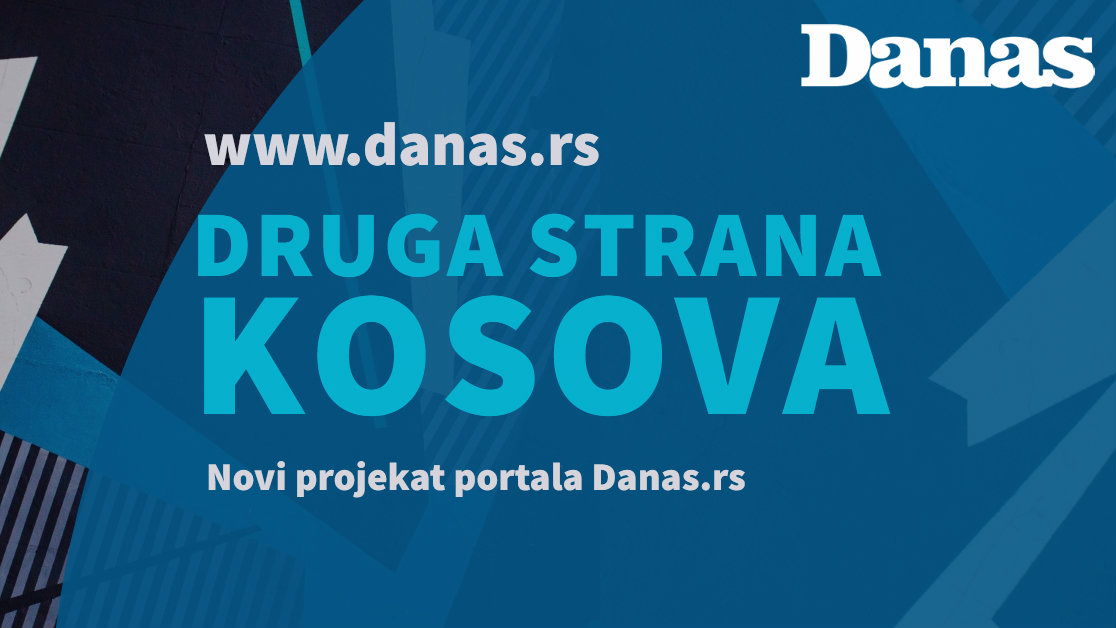
- Questions asked by Danas journalists:
What, in your opinion, should be prioritized first and foremost in order to normalize relations between Serbia and Kosovo?
The smartest endeavor of Serbia would be its recognition of Kosovo independence. It would help both Serbia and Serbian people. Serbia will do it one day, so the sooner, the better. Serbia and Kosovo can cooperate seriously only as two independent states. It is necessary to accept the reality. Any other solution will not be successful. Serbia should take responsibility for all crimes that Slobodan Milosevic’s regime committed in Kosovo. The denazification of Serbia will be good for the whole region. Also, Kosovar and Serbian citizens should know each other better in order to eliminate the prejudices. This is particularly important for young people.
What do you think about the process of normalization that is currently being led by the authorities in Pristina and Belgrade?
Brussels has “made up” the dialogue as the justification for its inability to solve the problems between two countries. Kosovo and Serbia cannot solve their disagreements on their own, without the serious interference from outside. Otherwise, the dialogue will last endlessly without the results.
Is it possible that the normalization of relations between Kosovo and Serbia might be achieved by the political elites that were active during the 1990s conflicts?
People who were the part of the regime that committed atrocious crimes not only in Kosovo but also in other countries in the region are today in power in Serbia. Taking the responsibility for the things that happened is the first step towards the reconciliation. To respect the victims, to give justice is not shame and weakness. The life of people in both countries is difficult because there is no justice for all victims, regardless of their ethnicity.
Instead of the insults thrown by the political elites in Belgrade to Kosovar Albanians, Vucic should visit Racak, Izbica, Ljubenic to honour the victims of the massacre. We must go on, not forgetting the past. And the past tells us that the aggressor was Milosevic’s regime and Albanians were victims.
In the meantime, Kosovo should offer full constitutional guarantees to Serbs, including all their rights. Kosovo is the country of all citizens who live in it – it is the country of all Kosovars.
Pratite nas na našoj Facebook i Instagram stranici, ali i na Twitter nalogu. Pretplatite se na PDF izdanje lista Danas.

